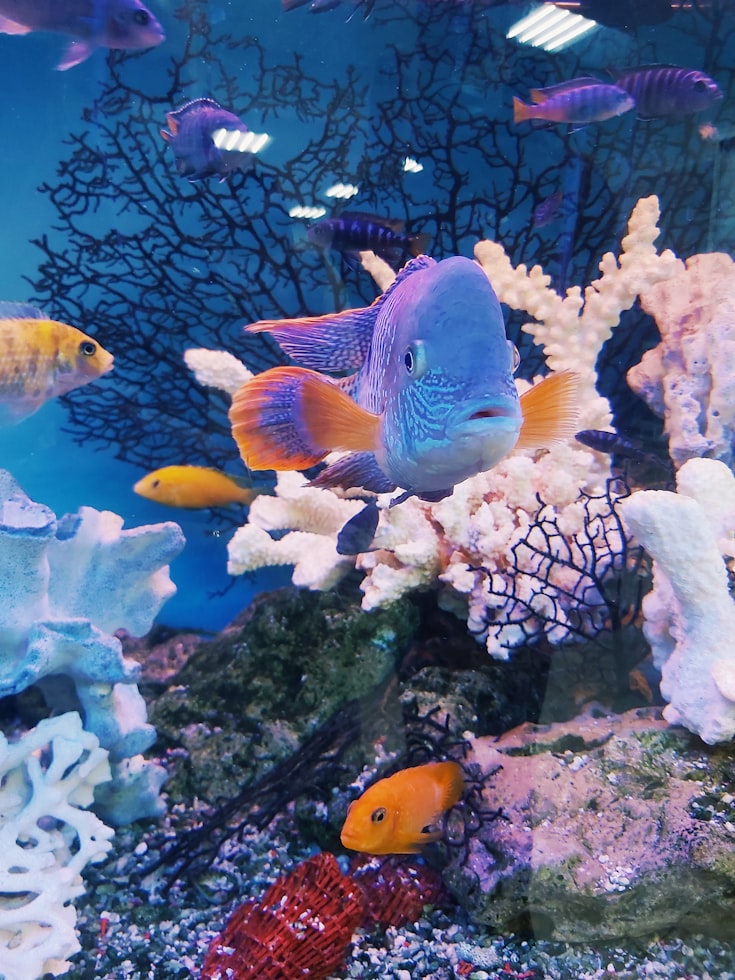The Importance of Protecting Marine Life and Preserving our Oceans

The oceans cover more than 70% of the Earth’s surface and provide a wide range of benefits for both humans and marine life. However, human activities are having a significant impact on the oceans and marine life, leading to declines in biodiversity and the degradation of ocean habitats.
Marine Biodiversity
Marine biodiversity refers to the variety of life found in the oceans. The oceans are home to an estimated 8.7 million species of plants and animals, including fish, mammals, birds, and invertebrates. Marine biodiversity plays a critical role in maintaining the health and productivity of the oceans and provides a wide range of benefits for humans, such as:
- Food security: The oceans are a major source of food for people around the world. Fish and shellfish are important source of protein for many coastal communities.
- Economic benefits: The oceans also provide a wide range of economic benefits, including tourism, recreation, and the extraction of resources such as oil and gas.
- Climate regulation: The oceans also play a critical role in regulating the Earth’s climate by absorbing carbon dioxide and heat.
- Cultural and spiritual value: The oceans also have cultural and spiritual value for many people around the world.

Threats to Marine Biodiversity
Despite the importance of marine biodiversity, human activities are having a significant impact on the oceans and marine life. Some of the major threats to marine biodiversity include:
- Overfishing: Overfishing is the removal of fish from the oceans at a rate that is not sustainable. Overfishing can lead to declines in fish populations and the degradation of marine habitats.
- Pollution: Pollution from human activities, such as oil spills, plastic pollution, and nutrient runoff, can have a significant impact on marine life.
- Climate change: Climate change is also having a significant impact on the oceans, including rising sea levels, ocean acidification, and changes in ocean temperature and circulation.
- Habitat destruction: Habitat destruction, such as the destruction of coral reefs, mangroves, and wetlands, can also have a significant impact on marine life.
Solutions
There are a number of solutions that can be implemented to protect marine life and preserve our oceans. These include:
- Marine protected areas: Marine protected areas (MPAs) are designated areas of the ocean that are protected from certain human activities. MPAs can help to protect marine biodiversity and habitats.
- Sustainable fishing practices: Sustainable fishing practices can help to reduce the impact of overfishing on marine life and habitats.
- Pollution control: Pollution control measures, such as regulations and best management practices, can help to reduce the impact of pollution on marine life.
- Climate change mitigation: Climate change mitigation measures, such as reducing greenhouse gas emissions, can help to reduce the impact of climate change on the oceans.
- Education and awareness raising: Education and awareness raising can help to increase understanding of the importance of protecting marine life and preserving our oceans and encourage people to take action to protect marine life.
- Research and monitoring: Research and monitoring can help to understand the current state of marine life, the impacts of human activities on marine life, and the effectiveness of conservation efforts.
- International cooperation: International cooperation is important in addressing the global issues that threaten marine life and the oceans. International agreements and conventions, such as the United Nations Convention on the Law of the Sea and the Convention on Biological Diversity, can help to protect marine life and the oceans.
In conclusion, marine biodiversity plays a critical role in maintaining the health and productivity of the oceans and provides a wide range of benefits for humans. However, human activities are having a significant impact on the oceans and marine life, leading to declines in biodiversity and the degradation of ocean habitats.
It is important to take action to protect marine life and preserve our oceans. Solutions such as marine protected areas, sustainable fishing practices, pollution control, climate change mitigation, education and awareness raising, research and monitoring, and international cooperation can help to protect marine life and preserve our oceans.
References:
- COP15 ends with landmark biodiversity agreement
- 2022 UN Ocean Conference | United Nations
- 2022 UN Biodiversity Conference #COP15
- Environmental Threats | WWF
- Ocean and Marine Wildlife Conservation Initiatives
- Environmental Threats | WWF
- The State of World Fisheries and Aquaculture (SOFIA) 2022
- The State of World Fisheries and Aquaculture 2022
- The state of world fisheries and aquaculture. 2022, towards blue transformation
- The State of World Fisheries and Aquaculture 2022 [EN/AR/RU/ZH]
- The State of World Fisheries and Aquaculture 2022: Toward Blue Transformation
- The State of World Fisheries and Aquaculture 2022 – Download it on Our Shared Seas
- The Ocean and Cryosphere in a Changing Climate
- Marine and Coastal Biodiversity
- Conservation and sustainable use of marine and coastal biodiversity





